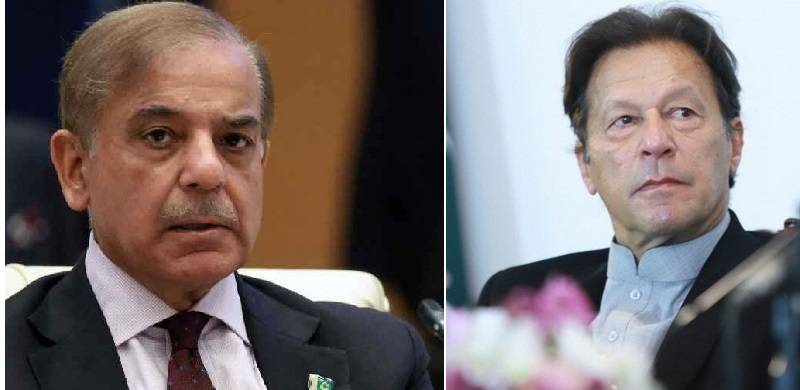
As the top court has given political parties a chance to break the impasse over Punjab elections, political consensus between the two sides remains a far cry.
The apex court asked the political parties to evolve consensus and if the matter is not resolved through political process, then May 14 stays as the date for elections in Punjab and Khyber Pakhtunkhwa.
PPP Co-chairman Asif Ali Zardari took a lead to appreciate the court for providing a path to develop consensus amid a tense situation.
He was the first politician to ask Prime Minister Shehbaz Sharif to shun differences and move forward.
Later, a religio-political party, Jamaat-e-Islami, came forward to play a crucial role to woo PTI for talks.
The recent statement of PTI leader Fawad Chaudhary, after the court proceedings, has not cleared the mist as he asked the Supreme Court to begin contempt proceedings against the government for not issuing funds for the polls. Though he also spoke about finding a common ground.
Read this too: Punjab Polls: We Cannot Undo Verdict, Remarks CJP
Political sources say that the senior leaders will hold a meeting with the party's chairman Imran Khan sometime soon for a future course of action.
Likewise, the PDM coalition has also begun talks on the situation emerging out of SC's insistence for a dialogue. The aim of the coalition is to have a unanimous stance.
It may be noted here that the recent huddle of government allies on whether or not they should hold talks with the PTI ended without results.
The alliance is not on the same page when it comes to a dialogue with the arch-rivals. However, some in the coalition consider it a last resort to pull the country out of its quagmire.
Political gurus are of the stance that PTI and ruling alliance will try to find a middle ground in the days to come.
Meanwhile, sources in the ruling clique said their representatives will appear before the SC to share their previous stance on paucity of funds for the elections.
The apex court asked the political parties to evolve consensus and if the matter is not resolved through political process, then May 14 stays as the date for elections in Punjab and Khyber Pakhtunkhwa.
PPP Co-chairman Asif Ali Zardari took a lead to appreciate the court for providing a path to develop consensus amid a tense situation.
He was the first politician to ask Prime Minister Shehbaz Sharif to shun differences and move forward.
Later, a religio-political party, Jamaat-e-Islami, came forward to play a crucial role to woo PTI for talks.
The recent statement of PTI leader Fawad Chaudhary, after the court proceedings, has not cleared the mist as he asked the Supreme Court to begin contempt proceedings against the government for not issuing funds for the polls. Though he also spoke about finding a common ground.
Read this too: Punjab Polls: We Cannot Undo Verdict, Remarks CJP
Political sources say that the senior leaders will hold a meeting with the party's chairman Imran Khan sometime soon for a future course of action.
Likewise, the PDM coalition has also begun talks on the situation emerging out of SC's insistence for a dialogue. The aim of the coalition is to have a unanimous stance.
It may be noted here that the recent huddle of government allies on whether or not they should hold talks with the PTI ended without results.
The alliance is not on the same page when it comes to a dialogue with the arch-rivals. However, some in the coalition consider it a last resort to pull the country out of its quagmire.
Political gurus are of the stance that PTI and ruling alliance will try to find a middle ground in the days to come.
Meanwhile, sources in the ruling clique said their representatives will appear before the SC to share their previous stance on paucity of funds for the elections.

